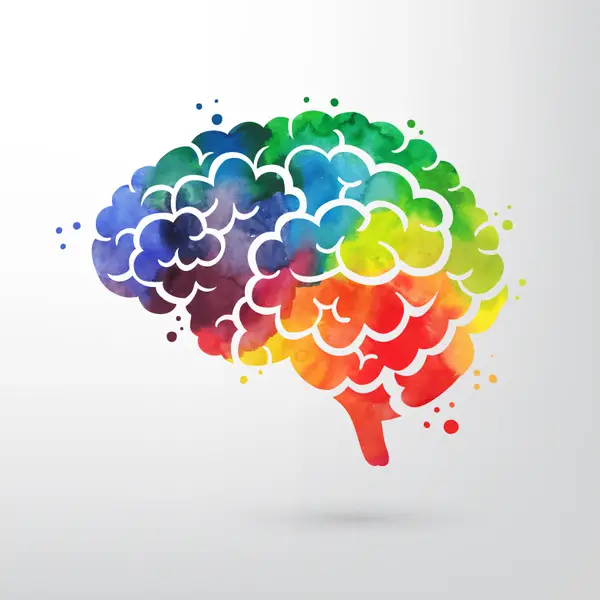As our knowledge of coffee improves, technology develops and the labour market changes, we need to adapt and evolve our skillsets so that we can continue to thrive in the coffee industry. Learning is a skill, and as with any skill, you can get better by applying yourself, and having the right mindset.

Our mindset towards learning can help or hinder how we learn, what we learn and our willingness to learn. With a growth mindset we are open to learning new things, we are not afraid of making mistakes, and we believe that with effort, we can improve. With a fixed mindset, the opposite is true, our focus is proving what we know, not revelling in what we do not. Our opportunities to learn have dramatically increased over the last 20 years, enabled by technology like the world wide web and E-Learning platforms. We have also seen industry specific developments, like those in the coffee industry where the types of courses available, and the number of different providers has grown significantly. The challenge we face, is that lifelong learning is now more important than ever. Since we change roles more frequently throughout our working lives, we need to continue updating our skills and knowledge. To do this effectively, a growth mindset towards learning can help us prepare for job opportunities as they evolve.
The pace of change in the labour market is the fastest it has ever been with the Future of Jobs report 2020 from the WEF predicting that by 2025, 97 million new roles may emerge due to the division of labour between technology, machines and algorithms. This is staggering since 85 million jobs may also be displaced as the automation of roles increases. It highlights that we need to update our skills, because the way in which we do our jobs today, is changing rapidly.
Education and learning is the pathway to new skills. As jobs evolve we can develop new skills utilising technology, from machine programming, to the next trend in social media. Barista roles may develop from manual tasks such as dose, distribute, tamp to program, evaluate, communicate. So how do we go about learning these new skills? It can be more effective if we start with a growth mindset. (Yeager, D.S., Hanselman, P., Walton, G.M. et al. 2019)
The concept of growth and fixed mindsets was developed by Professor Carol Dweck, a Psychologist at Stanford university who has spent her career studying motivation. Dweck distinguishes the two types of mindset as:
"In a fixed mindset, students believe their basic abilities, their intelligence, their talents, are just fixed traits. They have a certain amount and that's that, and then their goal becomes to look smart all the time and never look dumb. In a growth mindset, students understand that their talents and abilities can be developed through effort, good teaching and persistence. They don't necessarily think everyone's the same or anyone can be Einstein, but they believe everyone can get smarter if they work at it."
It is worth highlighting the importance of effort. Much of the motivation to perform in a task is based on a fear of failure. Mueller & Dweck (1998) found that 5th graders were more likely to choose an easier task, over a challenging task when praised for a result, instead of their effort. Those praised for being 'smart' chose the easy task, so that they would be less likely to fail, while those told they must have worked hard to get a result, were more likely to choose a challenging task they could learn from.
A growth mindset can be developed (Yeager et al). While 40% of the population are thought to have a fixed mindset, 20% in-between and the remaining 40% have a growth mindset, it is possible to cultivate a growth mindset and as Dweck argues, live a less stressful life and achieve greater success (wikipedia).
Here are some applications of a growth mindset, that can be applied to your learning journey:
• Mistakes are an opportunity to learn: what was the error, why did it happen? Is it a knowledge gap, a skills gap, or even something emotional. Identify the root cause and address it.
• Be kind to yourself: learning can be hard, acknowledge that it takes time and everyone struggles at some point.
• Be mindful: how do you feel - observe your emotions, they do not determine your success. If you feel impatient, ask yourself what is the rush? If you feel nervous, think about why, remind yourself of your goals.
• Have clear goals: your goal is not to learn quickly, or to avoid mistakes, your goal is to improve your knowledge, skills, or well-being.
• Create steps: every journey starts with a single step. Break larger topics into smaller sections and methodically go through each step.
• Celebrate small wins: with each step achieved, reward yourself. Reflect on what you have achieved and know that you can continue.
• Apply yourself to the challenge: learning requires effort. You have nothing to lose, but everything to gain. • Find your own learning style: learning takes many forms - reading, listening, watching, doing. Find the right media for your preferred style, also try to deepen your knowledge by applying two styles to one subject. Watch a video, read an article, you gain different insights from both.
• Organise your knowledge, practice your skills: take notes, structure and review them, put your own words to the topic, teach yourself or someone else what you have learnt. Practice to improve your skills - break skills into sections, practice each section and learn why it is part of the process.
• Make it hard: What? Yes, breakthroughs in learning happen when you struggle, if you find something easy, dig deeper, question what you know and how you know it.
• Be creative: make learning fun - you will still learn, and this technique can make learning more holistic and easier to do. Illustrations, design, games, competitions all aid in learning.
• “Happiness is not the belief that we don’t need to change; it is the realization that we can. For me, happiness is the joy we feel striving after our potential.” ― Shawn Achor

1. Future of Jobs 2020 – WEF - https://www.weforum.org/reports/the-future-of-jobs-report-2020/digest
2. A national experiment reveals where a growth mindset improves achievement
3. Yeager, D.S., Hanselman, P., Walton, G.M. et al. A national experiment reveals where a growth mindset improves achievement. Nature 573, 364–369 (2019). https://doi.org/10.1038/s41586-019-1466-y
4. Mindset: the new psychology of success by Carol Dweck
5. Stanford University’s Carol Dweck on the Growth Mindset and Education JUNE 19, 2012 by James Morehead From https://onedublin.org/2012/06/19/stanford\-universitys\-carol\-dweck\-on\-the\-growth\-mindset\-and\-education/\
6. Praise for Intelligence Can Undermine Children's Motivation and Performance Claudia M. Mueller and Carol S. Dweck http://radio.shabanali.com/intelligence_praise_mueller_dweck.pdf
7. https://en.wikipedia.org/wiki/Carol_Dweck
Become part of a global community of coffee professionals. Access courses and be the first to hear about news, research and events from across the coffee world.
Join now
© 2024 Coffee Knowledge Hub
Simonelli Group SpA
Via Emilio Betti, 1, 62020
Belforte del Chienti MC
P.IVA 01951160439
VAT n. 01951160439
info@coffeeknowledgehub.com

This website utilises cookies to enable necessary site functionality such as logging you in to your account. By remaining on this website you indicate your consent as outlined in our Cookie Policy.